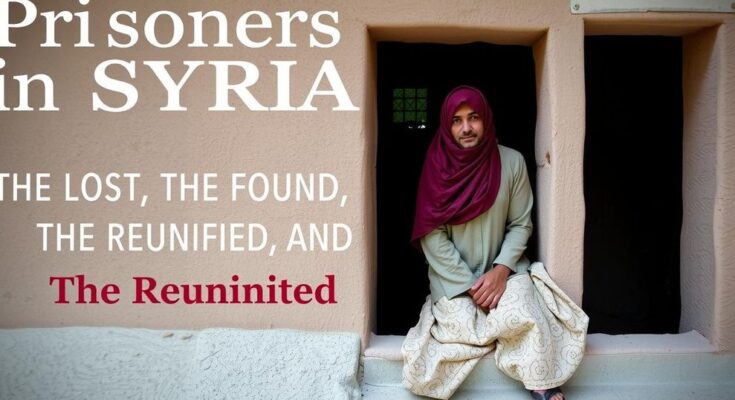In post-Assad Syria, families seek missing loved ones amid enduring tragedy. Mazen al-Hamada’s and Rania al-Abbasi’s stories reflect the pain and struggle of many victims of the regime’s brutal tactics, while Tal al-Mallouhi’s release marks a ray of hope. Despite some reunions, justice remains elusive for countless families still searching for the truth of their loved ones’ fates.
In the aftermath of the fall of President Bashar al-Assad’s regime, Syrians have inundated detention facilities in search of loved ones imprisoned or missing. While thousands of captives have been liberated, a significant number remain unaccounted for, with hopes of their return dwindling each day. The Syrian Observatory for Human Rights estimates nearly half a million lives were lost during the country’s civil war, with government-run prisons possibly claiming the lives of up to 100,000 individuals.
Among the grim stories of freedom and loss, Mazen al-Hamada’s narrative stands prominent. A dedicated activist who rallied against Assad’s oppressive rule, al-Hamada became a target of the regime, arrested in 2012 and subjected to extreme torture for nearly two years. His eventual release saw him detailing his harrowing experience through international platforms, seeking justice for himself and his fellow detainees. Tragically, al-Hamada’s life was cut short upon his return to Syria, where he was forcibly disappeared, his lifeless body later recovered from a hospital. His plight epitomizes the suffering inflicted by the regime, leaving a lasting mark on the collective psyche of the nation.
Rania al-Abbasi’s story reflects the pervasive anguish experienced by families of the disappeared. Despite living a seemingly serene life in Damascus, al-Abbasi and her family were apprehended by security forces following a charitable act in 2013. Her sister, Naila, has dedicated herself to uncovering the fates of her sister and the children taken during the arrest. Alas, with no verifiable details emerging over the years, Naila’s hope dims, echoing the despair of countless families searching for their missing loved ones amid the regime’s atrocities.
Finally, Tal al-Mallouhi’s release after nearly 15 years showcases a glimmer of hope among the darkness. Initially arrested as a teenager for her blog posts, Tal endured significant suffering while being held incommunicado. Even as she reunited with her mother, the lasting scars of her experience remain unclear, and her journey to recovery will take time. Her resilience embodies the spirit of many who continue to fight for justice in the face of tyranny.
The article sheds light on the tragic narratives emerging from Syria’s prolonged conflict and the aftermath of the regime’s fall. As families search for their loved ones amidst a climate of despair, the impact of the civil war resonates through various personal accounts. The systematic imprisonment and torture inflicted by government forces, particularly in notorious facilities, have left deep scars on survivors and their families, underlining the urgent need for accountability and justice for the countless victims of this human tragedy.
The harrowing stories of Mazen al-Hamada, Rania al-Abbasi, and Tal al-Mallouhi emphasize the broader toll of the Syrian conflict on human lives. While some families have found closure, many remain haunted by uncertainty concerning their missing loved ones. The persistent struggle for justice highlights a community yearning for recognition of their pain and a future free from oppression. As these tales resonate, they stand as a testament to the resilience of the Syrian people in the face of unimaginable adversity.
Original Source: edition.cnn.com




